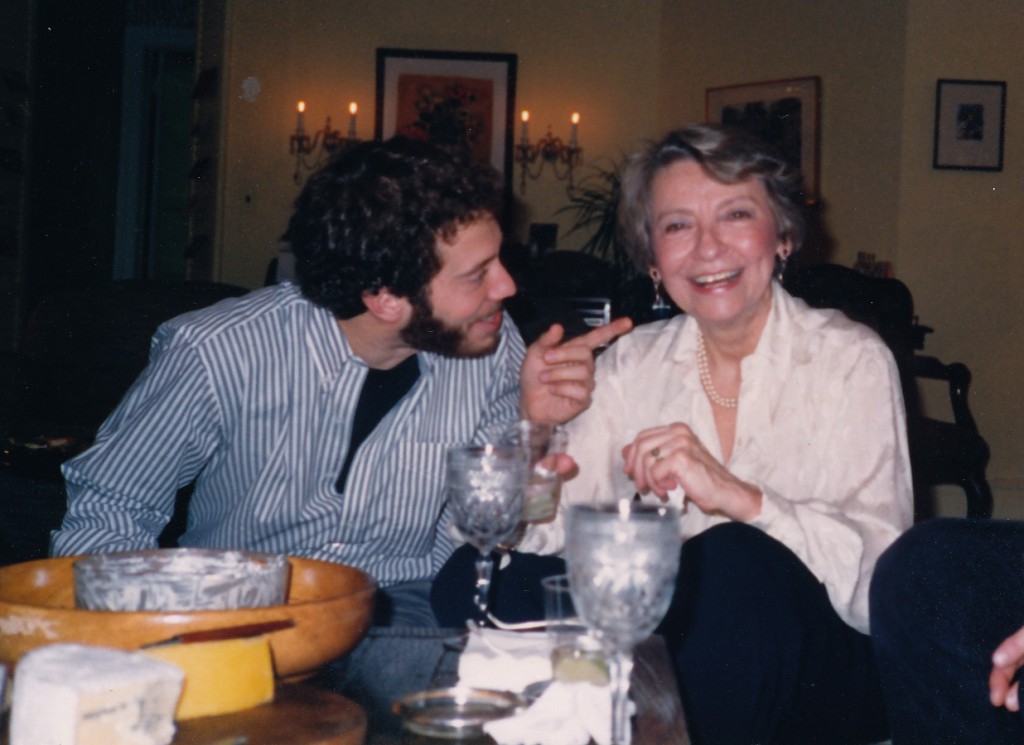When I was a kid, growing up culturally Jewish in the suburbs of New York City, we used to celebrate Christmas. Many of the Jewish families in our town did, and so too did some of our Jewish relatives in nearby communities. I’ll admit that it struck me as odd sometimes — we identified as Jewish. We didn’t try to hide our heritage in any way. But we celebrated the Christian holidays — Easter as well as Christmas. We also celebrated Passover. We didn’t do much with Hanukkah, though every couple of years one of us might pull out our old, tinny Menorah and light candles.
We had a wonderful old collection of glass ornaments for our trees — ornaments I still have to this day. (Well, I have most of them. Each year one of us would drop one or two — a slow, steady attrition, like ornaments being voted off the Island of Misfit Culturally Inappropriate Holiday Paraphernalia.) My mother always insisted on Scotch Pines for our trees, because she loved their scent. More than any other tree, she believed, Scotch Pines smelled like Christmas. Or like Christmas was supposed to smell in Jewish households.
I was the youngest of four children by many, many years. My oldest sibling, Bill, was nearly 15 years older than me; the other two, my sister Liz, and my brother, Jim, have me by 12 and 6 years respectively. And so by the time I was old enough to be aware of such things, my parents had passed off the task of buying our tree to my siblings and me. Sometimes all four of us went to pick one out, sometimes it was just us “boys.” After a while, certainly by the time I was in middle school, Jim and I were the only ones who cared enough to go.
And there were certain immutable traditions we had to follow. One, as I have already said, was that we get a Scotch Pine. The problem with this rule was that Scotch Pines are actually quite ugly as Christmas trees go. They are short, squat, dumpy even — the Dwarves of Christmas-Treedom. They are also are notorious for having bent trunks, making them hard to set up in a tree stand. Almost every year, Jim and I would reach the tree lot — there was one in particular we went to most years — and spend a bit of time staring wistfully at the Blue Spruces and Douglas Firs, noting their sleek, triangular perfection, their symmetry, their straight trunks. And then, remembering our mother’s preference, we would trudge over to the “Scotch Pine Forest” and pick out our lumpy tree.
The other two immutable traditions — which actually bring me to my purpose in writing this post — were that we get our tree on the day of Christmas Eve, and that we spend no more than the $20 Dad would peel off his billfold that very morning before he headed off to work.
Having the tree in the house meant disrupting the strict order of our furniture and furnishings. My parents loved their home and had designed it with care, so that it looked just so. The tree was like a relative who comes every year and parks himself on your couch in the middle of the living room. They knew he was coming, they knew he would be gone just after New Year’s. Best, then, to limit the damage and its duration. We bought the tree on December 24th, we decorated that night, usually after a dinner of Chinese food at a local restaurant, and we broke that sucker down on New Year’s Day, a week later.
And the $20 . . . That was just Dad’s price limit. He loved to tell the story of the time he spent $2.00 on a tree, back when he and my mother were first married. He bought a tree for $5.00 and then had the vendor cut off a branch or something that made it look lopsided. (No doubt this was a Scotch Pine, too.) And as the vendor cut the piece off, a guy happened by, spotted the scrap, and said to my father, “That’s just what I need. I’ll give you three bucks for it.”
He was in finance, and so understood inflation. He never expected us to replicate his feat. But $20 was his limit. The tree was only going to be in the house for a week, after all. Why should we spend more? This had the effect of further locking us into Scotch Pines, since the trees for which Jim and I pined (sorry, couldn’t resist . . .) were way more expensive. At the same time, I have to admit that the timing of our purchase helped with the $20 strategy. By mid-afternoon on the 24th of December, the guys selling trees were looking at taking a loss on their remaining stock. Every tree we bought at the last moment meant one fewer tree in the wood-chipper. We usually got pretty good deals.
Fast forward several decades, and I find myself, on this post-Thanksgiving weekend, wondering if I need to be buying our tree today. Our girls LOVE having a tree at the holiday, and the truth is Nancy and I love it, too. So we have to get one. In this part of Tennessee, though, as in so many parts of the country, trees went on sale LAST weekend, two thirds of the way through November. A week or two from now, they’ll be gone. Buying a tree on December 24? Impossible.
And buying a tree for $20?
Sorry. I’m done laughing now.
We don’t buy Scotch Pines. Usually it’s Frasier Firs. But they can cost upwards of $80. Or more. By my father’s calculus, in order to make that expense worthwhile, we’d have to keep the tree up until Valentine’s Day. Trees have gotten so expensive, and I feel so much pressure to buy one before the lots empty out, that this year Nancy and I have considered the unthinkable. That’s right. We have discussed getting an artificial tree.
There are real reasons for doing this, or at least thinking about it. Artificial trees, if reused for several years, are marginally better for the environment (although, since they’re made of plastic and shipped here from overseas, it’s a very close call). In terms of relative cost, they pay for themselves in a few years — again, this assumes we would reuse the tree year after year. They can be put up and taken down whenever we want. They don’t have to be watered. They are far less likely to catch fire. They don’t shed to the extent that real trees do.
But they don’t have that Christmas tree smell. Scotch Pine, Balsam, Firs, Spruces. They ALL smell great. The artificial ones, not so much. Which means we’ll probably break down and buy a real tree, likely sometime in the next few days.
Then again, those pine-scented air fresheners for cars are fairly cheap. And they look a little like Christmas ornaments . . .
Have a good week.









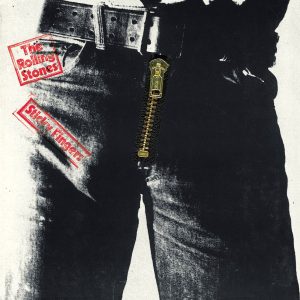 Music isn’t meant to be sold song by song. We’re supposed to buy albums. We’re supposed to put up with the bad songs in order to enjoy the good ones. That makes the listening experience better. For every “Eleanor Rigby” and “For No One” we should have to endure a “Doctor Robert.” For every “Brown Sugar” and “Can’t You Hear Me Knockin’?” we should have to suffer through a “You Gotta Move.” It’s only fair. No one is entitled to a perfect listening experience, and songwriters deserve the chance to have their crappy songs heard alongside the good ones. This is America, damnit!
Music isn’t meant to be sold song by song. We’re supposed to buy albums. We’re supposed to put up with the bad songs in order to enjoy the good ones. That makes the listening experience better. For every “Eleanor Rigby” and “For No One” we should have to endure a “Doctor Robert.” For every “Brown Sugar” and “Can’t You Hear Me Knockin’?” we should have to suffer through a “You Gotta Move.” It’s only fair. No one is entitled to a perfect listening experience, and songwriters deserve the chance to have their crappy songs heard alongside the good ones. This is America, damnit!
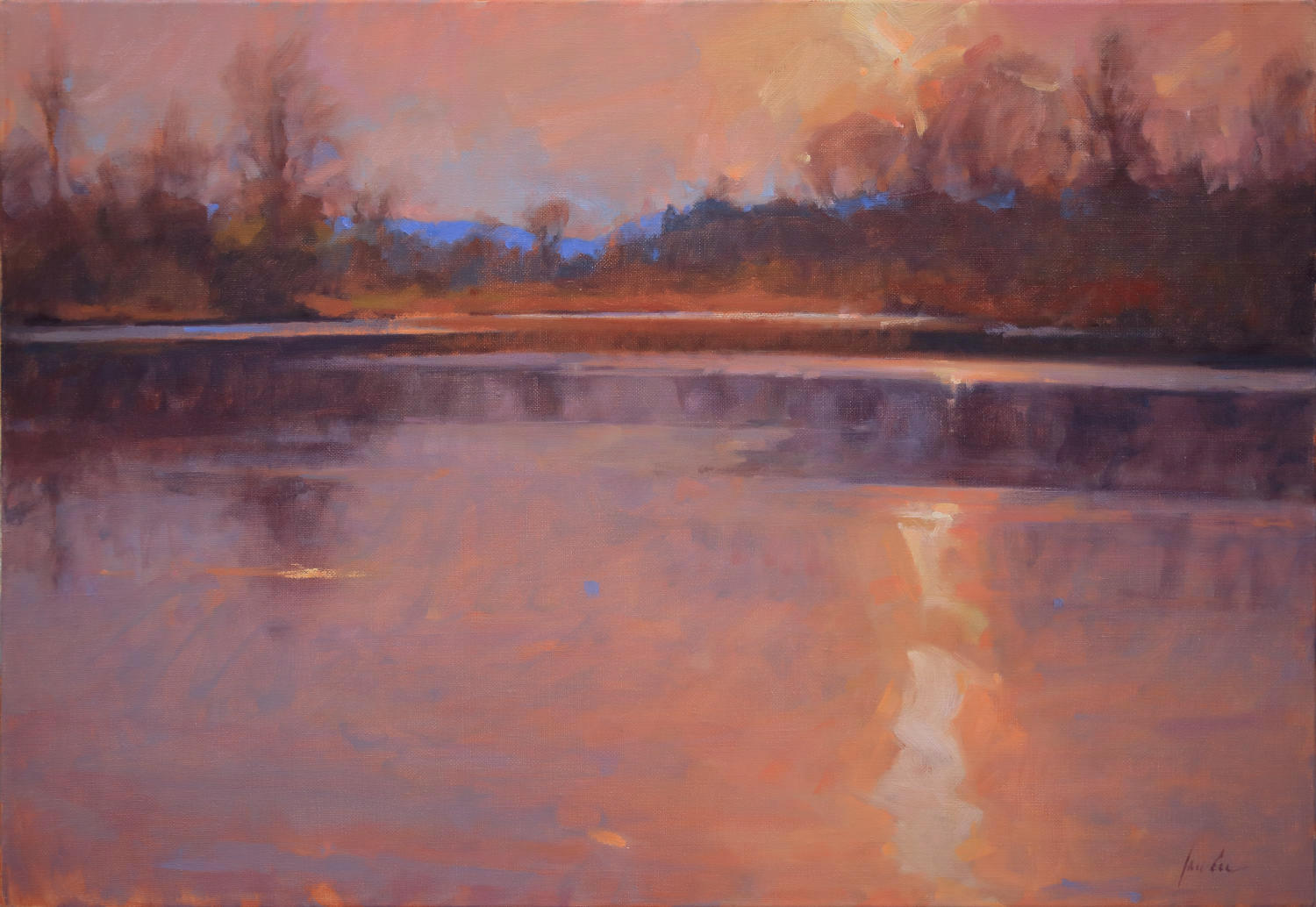
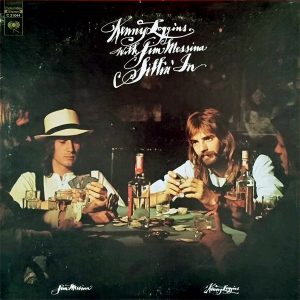 For this week’s Creative Friday post, I’m doing something a little different, and writing about someone else’s creativity.
For this week’s Creative Friday post, I’m doing something a little different, and writing about someone else’s creativity.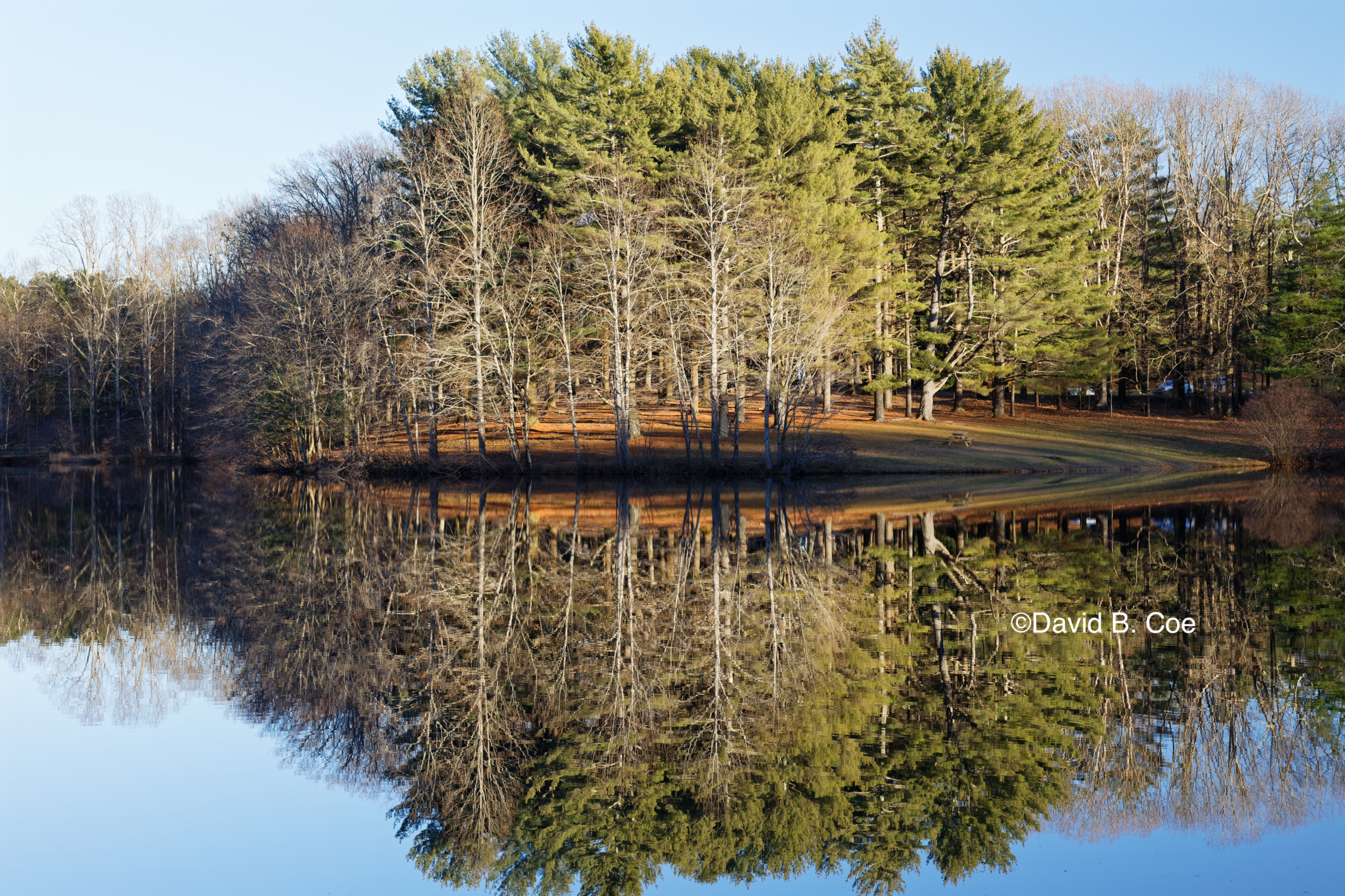
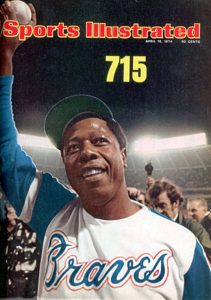 I was watching that night, along with pretty much every other eleven year-old, baseball-loving boy in America. I remember everything about it — the call from announcer Vin Scully, the twist and high stare of Dodgers pitcher Al Downing as he watched the ball sail out over left field, Aaron’s joyful trot around the bases, the two white guys in civilian clothes who appeared out of nowhere as he rounded second base and patted his back and shoulder, the way his jubilant teammates mobbed him at home plate and put him on their shoulders. I still have the issue of Sports Illustrated from the next week, with Aaron on the cover holding up the baseball next to a golden, bolded “715.” And I also still have the special edition baseball card Topps issued that same year proclaiming Aaron baseball’s home run king.
I was watching that night, along with pretty much every other eleven year-old, baseball-loving boy in America. I remember everything about it — the call from announcer Vin Scully, the twist and high stare of Dodgers pitcher Al Downing as he watched the ball sail out over left field, Aaron’s joyful trot around the bases, the two white guys in civilian clothes who appeared out of nowhere as he rounded second base and patted his back and shoulder, the way his jubilant teammates mobbed him at home plate and put him on their shoulders. I still have the issue of Sports Illustrated from the next week, with Aaron on the cover holding up the baseball next to a golden, bolded “715.” And I also still have the special edition baseball card Topps issued that same year proclaiming Aaron baseball’s home run king.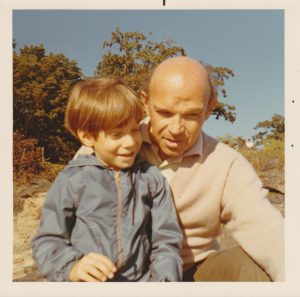 My father was born in 1919, lived through the Great Depression, lost a brother to World War II, married my mother half a year after V-E day (almost to the day). He supported Wendell Wilkie in the Presidential election of 1940 (although he would have been too young by a month to vote) and very nearly lost my mother when he confessed this to her before their wedding. Never again did he vote for a Republican for President.
My father was born in 1919, lived through the Great Depression, lost a brother to World War II, married my mother half a year after V-E day (almost to the day). He supported Wendell Wilkie in the Presidential election of 1940 (although he would have been too young by a month to vote) and very nearly lost my mother when he confessed this to her before their wedding. Never again did he vote for a Republican for President.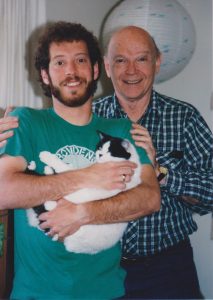 He was caring and generous, devoted to his family and friends. He loved a crass joke, but he took great pride in being gentlemanly – a product of his upbringing. My grandmother demanded no less of both her sons, just as my dad demanded no less of my brothers and me. I remember in high school he and I drove my girlfriend back to her home – I sat up front and she was in back. We pulled up to her house, and he turned around and said, “M____, you stay right there until he gets your door for you and walks you in.” Which, of course, I scrambled to do.
He was caring and generous, devoted to his family and friends. He loved a crass joke, but he took great pride in being gentlemanly – a product of his upbringing. My grandmother demanded no less of both her sons, just as my dad demanded no less of my brothers and me. I remember in high school he and I drove my girlfriend back to her home – I sat up front and she was in back. We pulled up to her house, and he turned around and said, “M____, you stay right there until he gets your door for you and walks you in.” Which, of course, I scrambled to do.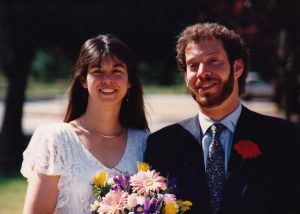 It’s Memorial Day – and, it seems to me, a particularly somber one at that – and so I won’t write too much for today’s Musings.
It’s Memorial Day – and, it seems to me, a particularly somber one at that – and so I won’t write too much for today’s Musings.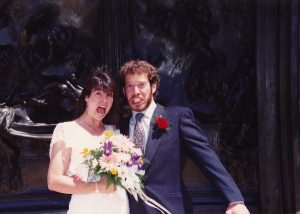 But we did everything we could to keep costs down. Because we were students at the school, Stanford allowed us to marry in the Rodin Sculpture Garden, near the university museum, for something like $200. It was a gorgeous venue — we have joked since that we were married in front of the Gates of Hell, because, well, we were. We had our reception at a reasonable local restaurant – part of a Bay Area chain called, I kid you not, the Velvet Turtle. Not amazing, but decent food and lots of it. We hosted a party the night before the wedding at our apartment, and then did the same for brunch the day after the wedding. Our big activity? On Saturday afternoon, after the rehearsal lunch, we had a softball game for the entire guest list – whoever wanted to play. (We played a lot of softball in grad school – her bio lab had an intramural team.) The game was bride’s team against the groom’s team (randomly selected). I have no idea who won. But the two key rules were, 1) Nancy didn’t have to play in the field, and 2) she got to bat whenever she wanted, no matter which team was up. She would just announce, “Bride’s turn to hit!” and then she would…
But we did everything we could to keep costs down. Because we were students at the school, Stanford allowed us to marry in the Rodin Sculpture Garden, near the university museum, for something like $200. It was a gorgeous venue — we have joked since that we were married in front of the Gates of Hell, because, well, we were. We had our reception at a reasonable local restaurant – part of a Bay Area chain called, I kid you not, the Velvet Turtle. Not amazing, but decent food and lots of it. We hosted a party the night before the wedding at our apartment, and then did the same for brunch the day after the wedding. Our big activity? On Saturday afternoon, after the rehearsal lunch, we had a softball game for the entire guest list – whoever wanted to play. (We played a lot of softball in grad school – her bio lab had an intramural team.) The game was bride’s team against the groom’s team (randomly selected). I have no idea who won. But the two key rules were, 1) Nancy didn’t have to play in the field, and 2) she got to bat whenever she wanted, no matter which team was up. She would just announce, “Bride’s turn to hit!” and then she would…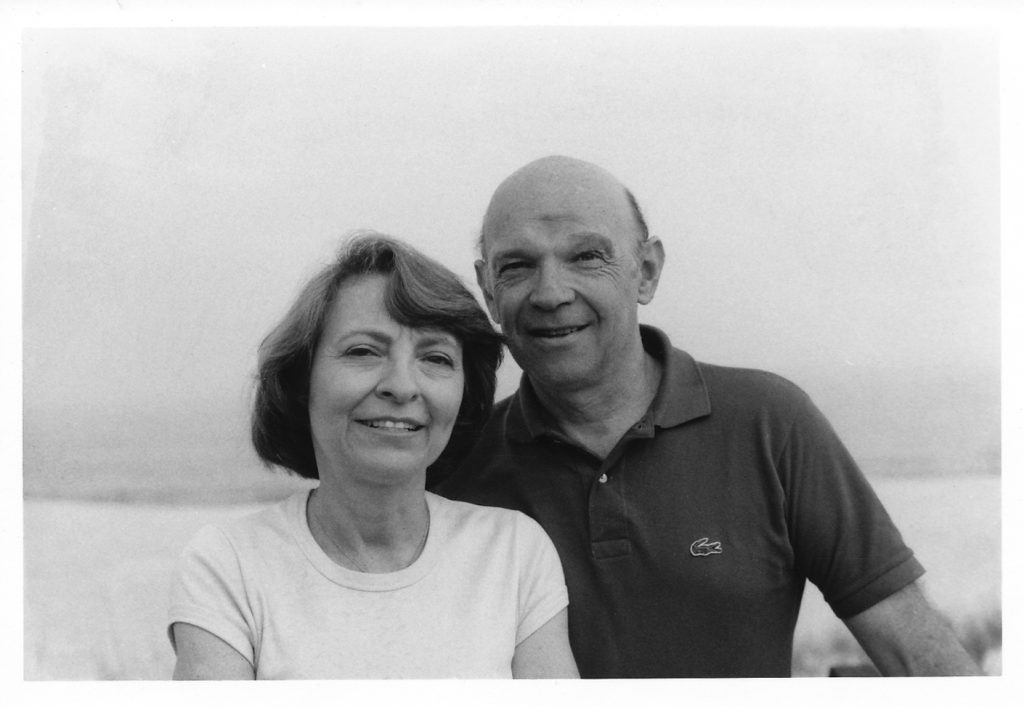 I am the youngest of four children, and by the standards of the time, my parents had me late in life, so I can say truthfully all of the following: I’ve always felt that I was too young to lose my mother, and I know that Mom died too soon, but I also know that she lived a full, rich life.
I am the youngest of four children, and by the standards of the time, my parents had me late in life, so I can say truthfully all of the following: I’ve always felt that I was too young to lose my mother, and I know that Mom died too soon, but I also know that she lived a full, rich life.